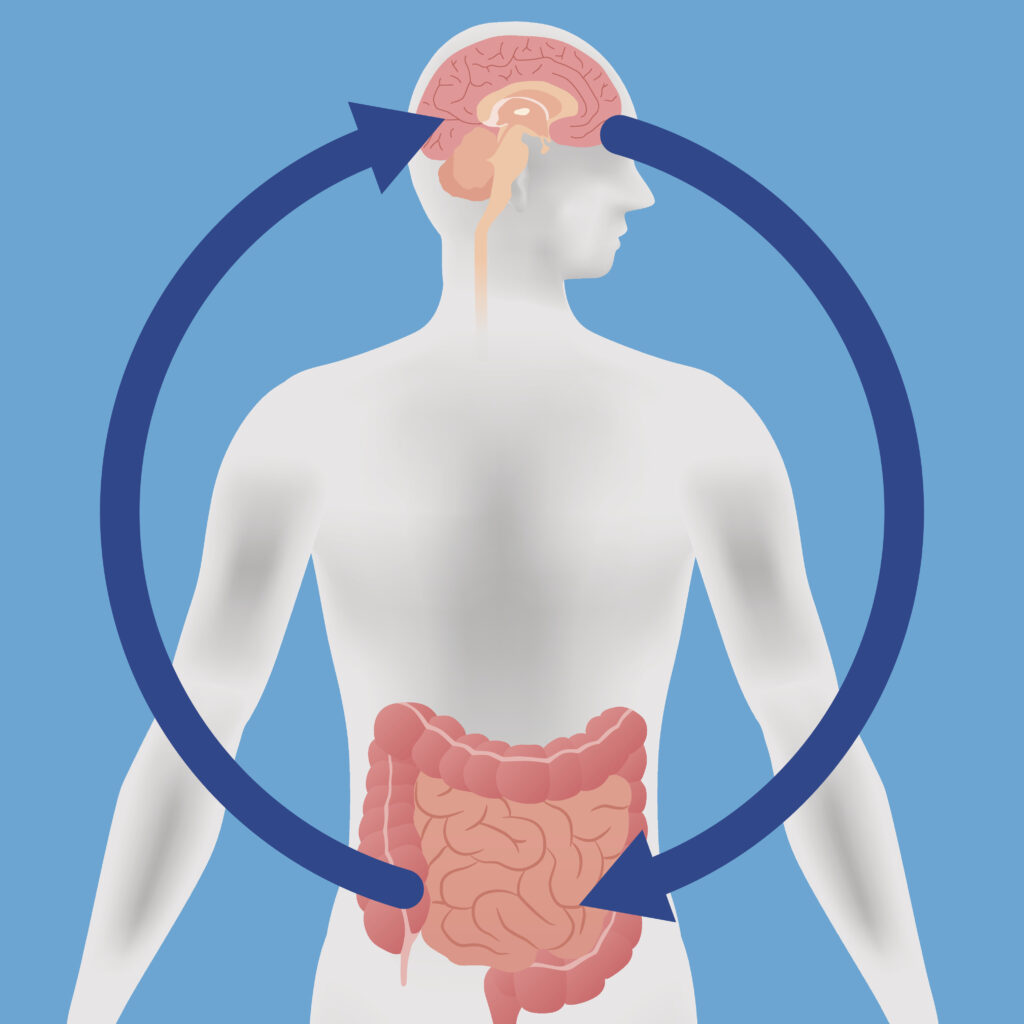Gut Health and Mental Well-being: Nurturing the Mind-Gut Connection
The Mind-Gut Connection: Unraveling the Impact on Mental Health
Introduction:
Did you know that your gut health can influence your mental well-being? In this blog, we will explore the fascinating relationship between the gut and the brain, and how nurturing your gut health can positively impact your mental health and emotional well-being.
The Gut-Brain Axis
The bidirectional communication between the gut and the brain is a complex and fascinating connection known as the gut-brain axis. This communication occurs through various pathways, including the enteric nervous system (ENS) and the central nervous system (CNS).
The enteric nervous system (ENS) is a complex network of neurons that is located within the walls of the gastrointestinal tract. It functions independently but also communicates with the central nervous system (CNS) through the vagus nerve and other neural pathways. This bidirectional communication allows for continuous information exchange between the gut and the brain.
The gut produces and releases a variety of neurotransmitters, including serotonin, dopamine, and gamma-aminobutyric acid (GABA). These neurotransmitters are not only important for gut function but also have a significant impact on mood and mental health. In fact, the majority of serotonin, often referred to as the “happy hormone,” is produced in the gut. Imbalances in these neurotransmitters can contribute to mood disorders, such as anxiety and depression.
Research has shown that the gut microbiome also plays a crucial role in the production and regulation of neurotransmitters. The gut microbiota can produce neurotransmitters themselves or influence the production of neurotransmitters by the host. This highlights the intricate relationship between gut health, the gut microbiome, and mental well-being.
The bidirectional communication between the gut and the brain has profound implications for mental health. It emphasizes the importance of maintaining a healthy gut to support optimal brain function and mental well-being. Nurturing a balanced gut microbiome through a diverse and fiber-rich diet, regular physical activity, stress management, and adequate sleep can contribute to a healthier gut-brain axis and promote overall mental health.
Gut Health and Mental Disorders
The link between an imbalanced gut microbiome and mental health conditions like anxiety and depression has gained significant attention in recent years. Emerging research has shown that alterations in the composition of gut bacteria, known as dysbiosis, can be associated with mental health disorders.
Several studies have observed differences in the gut microbiome of individuals with anxiety and depression compared to those without these conditions. These differences include reduced microbial diversity, changes in the abundance of specific bacterial strains, and alterations in the production of neurotransmitters and other signaling molecules.
While the exact mechanisms underlying this connection are still being explored, there are several theories. The gut microbiota can influence the production of neurotransmitters like serotonin and GABA, which play key roles in mood regulation. Additionally, the gut microbiome communicates with the brain through various pathways, including the gut-brain axis, influencing brain function and mental well-being.
Improving gut health through dietary modifications and lifestyle interventions may have potential benefits for managing mental health symptoms. Strategies that support a healthy gut microbiome include consuming a diverse and nutrient-rich diet, incorporating prebiotic and probiotic foods, managing stress levels, engaging in regular physical activity, and getting adequate sleep.
While optimizing gut health alone may not be a standalone treatment for mental health disorders, it can be an important complement to other therapeutic interventions. It is essential to consult with a healthcare professional or a registered dietitian who can provide personalized guidance and integrate gut health strategies into a comprehensive approach to mental health management.

Nurturing Your Gut for Better Mental Well-being
Diet plays a crucial role in promoting a healthy gut microbiome. Here are some dietary strategies to consider:
Consume Fiber-Rich Foods: Incorporate a variety of fiber-rich foods into your diet, such as fruits, vegetables, whole grains, legumes, and nuts. Fiber serves as a prebiotic, providing nourishment for beneficial gut bacteria.
Include Fermented Products: Incorporate fermented foods like yogurt, kefir, sauerkraut, kimchi, and tempeh into your diet. These foods contain beneficial probiotics that can help support a healthy gut microbiome.
Manage Stress Levels: Chronic stress can negatively impact gut health and the gut-brain axis. Implement stress management techniques such as meditation, deep breathing exercises, regular physical activity, and getting enough restful sleep.
Consume Probiotic-Rich Foods: Include foods that naturally contain probiotics, such as yogurt, kefir, kombucha, and fermented vegetables. These foods can help introduce beneficial bacteria into your gut.
Incorporate Prebiotic Foods: Consume foods that are rich in prebiotics, which are non-digestible fibers that nourish beneficial gut bacteria. Examples include garlic, onions, leeks, asparagus, bananas, and oats.
Stay Hydrated: Drink an adequate amount of water to support digestion and maintain a healthy gut environment.
Remember, each individual’s gut microbiome is unique, so it’s important to listen to your body and make dietary choices that work best for you. Consulting with a registered dietitian can provide personalized guidance tailored to your specific needs and goals.
Conclusion:
Your gut health has a profound influence on your mental well-being. By prioritizing your gut health through a balanced diet, stress management, and targeted nutritional support, you can nurture the mind-gut connection and promote better mental health and emotional balance.

